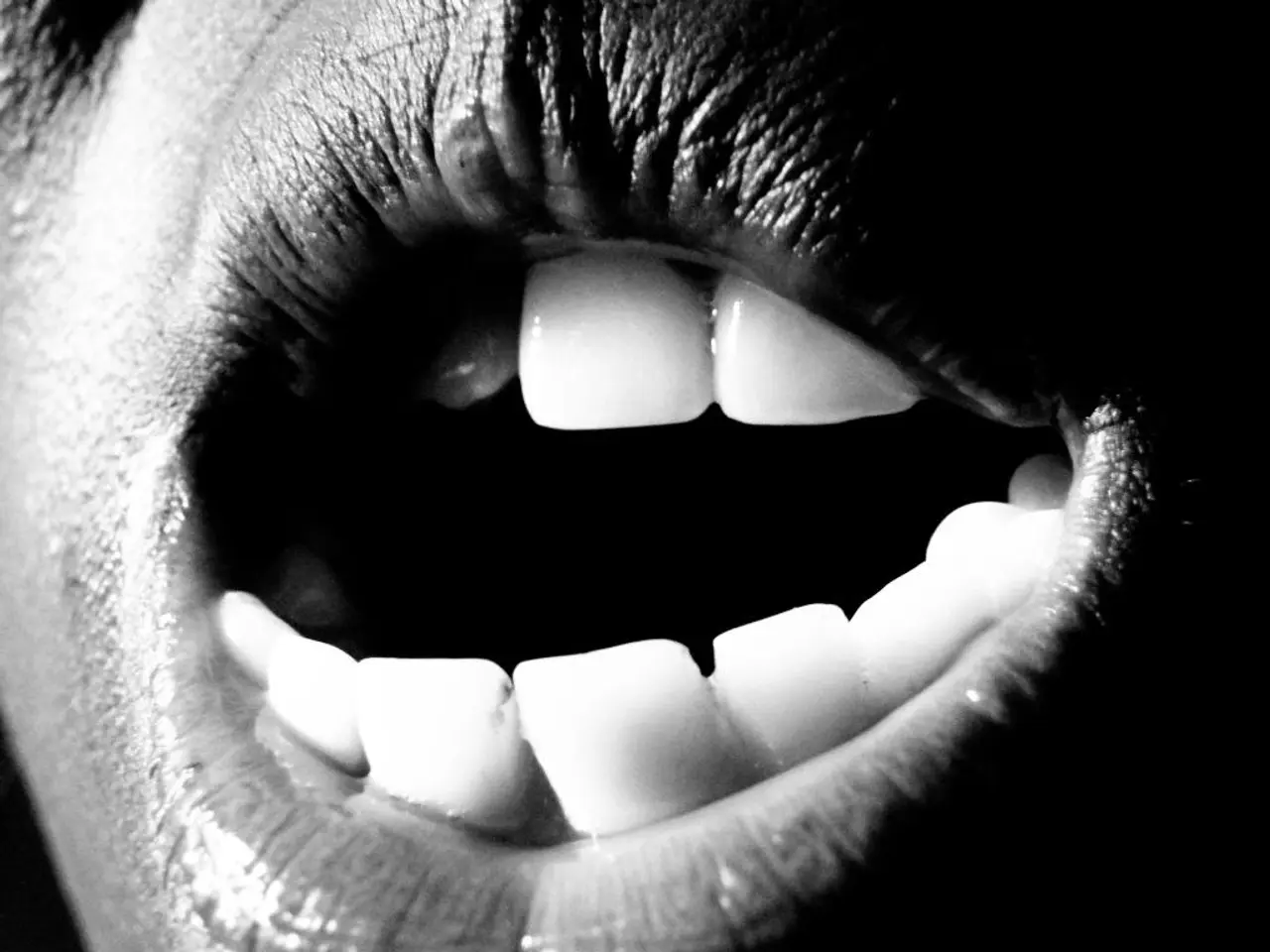Dental Cleaning: Procedure and Advantages
Maintaining Oral Health: A Comprehensive Approach
Good oral health is essential for overall well-being, and maintaining it involves more than just regular dental check-ups. Here's a guide to the recommended preventive measures for oral health.
Daily At-Home Oral Hygiene
Brushing teeth twice a day with fluoride toothpaste, flossing daily, and using antibacterial mouthwash are key to removing plaque and limiting bacterial buildup.
Proper Denture and Dental Prosthetics Care
For those with dentures, it's important to clean and disinfect them daily, remove them for at least six hours per night, and apply antifungal treatments if needed to prevent fungal infections like Candida.
Mouth Rinsing and Inhaler Use
Rinsing and spitting with water or bicarbonate solution after inhalation of corticosteroids can help reduce residue that can cause fungal overgrowth. Using spacer devices with inhalers also helps minimize oral deposition of medication residue.
Diet and Lifestyle Modifications
Maintaining a balanced diet low in sugar, avoiding smoking, and limiting acidic or sticky foods can prevent enamel erosion and gum disease.
Patient Education
Teaching correct oral hygiene techniques, inhaler use, and risks related to oral health supports less complications and better prevention outcomes.
Quit Smoking
Smoking increases the risk of gum disease and oral fungal infections; cessation improves mucosal immunity and overall oral health.
Hydration
Drinking water throughout the day rinses away food debris and bacteria, stimulates saliva, and helps maintain a protective oral environment.
Regular Professional Dental Check-ups
Besides prophylaxis, regular exams are crucial to catch early signs of oral disease and receive personalized guidance. The American Dental Association recommends people visit the dentist at least once a year for dental prophylaxis.
Potential Future Adjuncts
Research suggests that probiotic lozenges containing Lactobacillus strains may help reduce pathogenic biofilms and fungal growth.
Dental Prophylaxis: A Preventive Medical Treatment
Dental prophylaxis is a preventive medical treatment that involves regular checkups and oral hygiene maintenance to prevent dental disease. During a dental prophylaxis appointment, the dentist may check and clean the teeth, remove plaque, polish the teeth, carry out scans or X-rays, and advise on necessary dental work.
Spotting Early Signs of Oral Health Problems
Regular visits to the dentist can help prevent dental erosion and spot cavities or tooth decay early. Symptoms of gum disease include bad breath, tender gums, bleeding gums, swollen gums, loose teeth, sensitive teeth, and receding gums. During a dental prophylaxis appointment, dentists may use X-rays to discover potential oral health problems, check for signs of gum disease, and examine the mouth and teeth for signs of dental erosion.
When to See a Dentist
If you experience sensitive teeth, bleeding gums, puffy gums, persistent bad breath or taste, are pregnant, have pain or swelling in the mouth, face, or neck, or have a spot or sore in the mouth that does not go away, make an appointment with a dentist.
By following these guidelines, we can collectively form a comprehensive approach to prevent not only dental caries and gum disease but also secondary complications such as oral candidiasis and systemic health risks associated with poor oral hygiene. Regular dental visits can also help detect conditions such as mouth cancer, diabetes, and HIV early.
- Proper oral hygiene at home, which includes brushing teeth twice daily, flossing, using antibacterial mouthwash, and maintaining denture care, can prevent dental caries and gum disease.
- Regular dental screenings and check-ups are essential for the early detection of oral health problems like cavities, tooth decay, and gum disease.
- Research suggests that probiotic lozenges containing Lactobacillus strains may help reduce pathogenic biofilms and fungal growth, potentially serving as an adjunct to prevent oral health problems.
- In addition to preventative dental care, maintaining a balanced diet low in sugar, avoiding smoking, and limiting acidic or sticky foods can prevent enamel erosion and gum disease, contributing to overall health-and-wellness.




